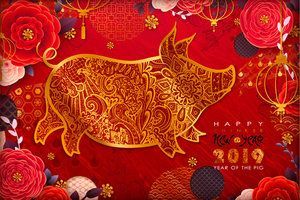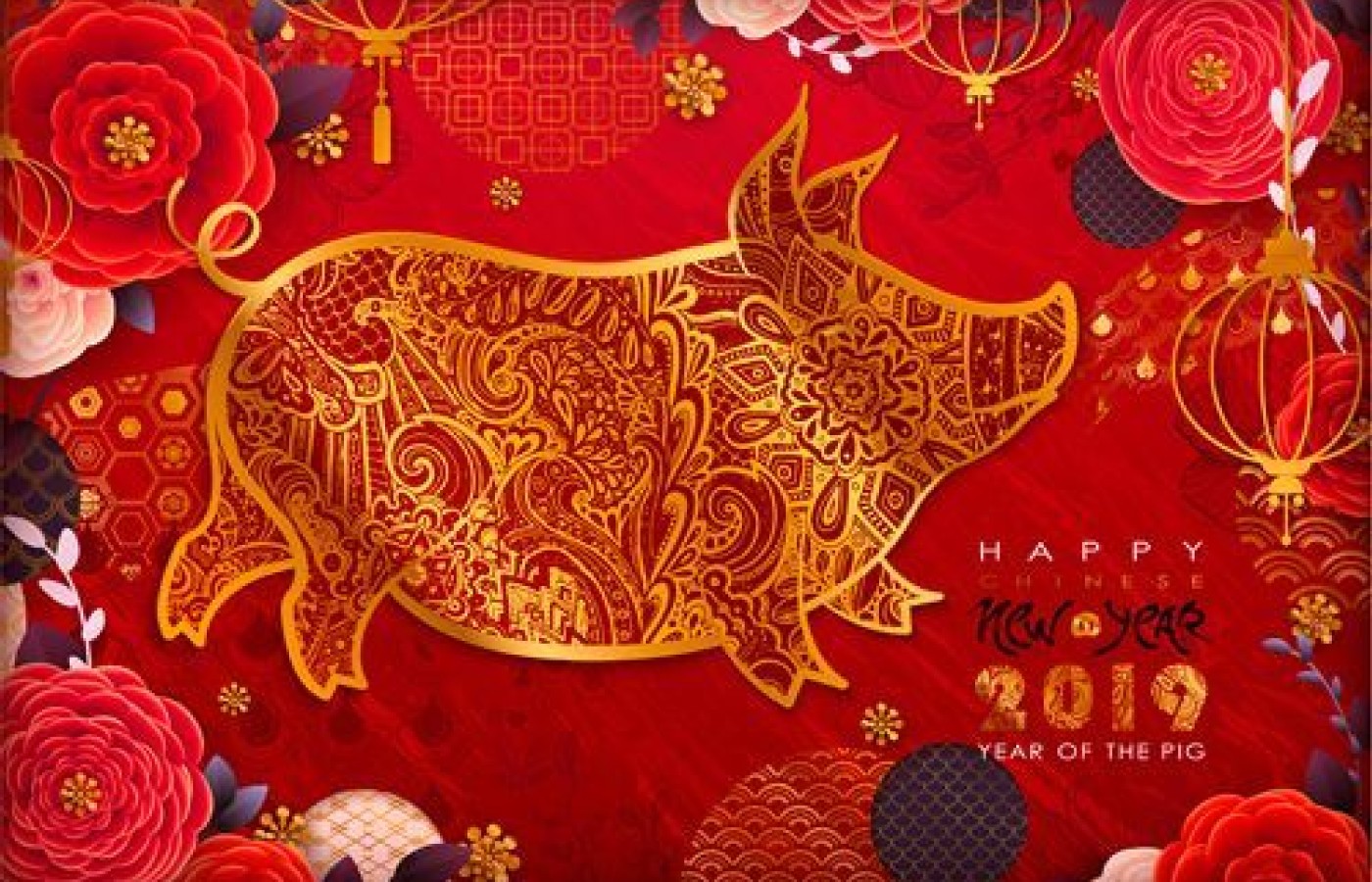The most important relationship I seek to nurture in the treatment room is the one a patient has with their own body. We live in a culture that teaches us to override pain, defer to outside authority, and push through discomfort. Patients often arrive hoping I can “fix” them, but the truth is, we can’t do the work for them. We can offer guidance, insight and support, but healing requires their full participation.
Flying Into the Year of the Pig: Making Way for the Impossible
The first of the new year has passed, and some of our New Year's resolutions may have already come and gone. Fortunately, we will celebrate the Chinese New Year this month, and will welcome in the Year of the Pig. This special animal, even though last in the 12-year cycle, is very unique. The pig is a mild and lucky animal. The pig is carefree, fun loving, and brings good fortune and wealth.
Those born during the Year of the Pig are usually happy, easy-going, honest, trusting, sincere, and brave. They are also generally hard-working, and peace-loving people. There are many other qualities that can be attributed to the pig, but suffice to say these people are usually lucky.
When Pigs Fly
By looking at some of the good qualities (and perhaps avoiding some of the negative ones) we can use these as guidelines for the issues facing the profession in the U.S. and around the world today.
While many of the good attributes can be used, we should also consider the expression "when pigs fly." Although this expression can be made light of, it also represents an impossibility, or in the least an issue that cannot be easily solved. I hope that this does not bring, or bear influence on some of today's current issues. The issue of "unity" faces the profession within our individual states, nationally in the U.S., as well as globally.

While attending the World Health Organization (WHO) ICD–TM 11 meeting in Korea I met two executive directors from two separate global federations. The first was from the International Federation of Nurses, representing over 16 million nurses worldwide. The second was from the International Federation of Occupational Therapists, representing over 500,000 occupational therapists globally. These two introductions got me thinking and considering the potential influence and power the acupuncture profession could have— not just in the U.S., but globally.
This medicine is the oldest, and yet we are looked at as being the youngest within the world of health care. Several of the other countries who are new to the World Health Organization classification meetings are struggling to establish and organize acupuncture within their respective countries as well. Consider this, do we have the responsibility as citizens of the world to help and contribute to the worldwide knowledge and presence of Asian medicine?
It probably seems like a big task, perhaps it feels like an impossibility, just like when "pigs fly." Especially when we don't even have the ability to agree within our own states, and country. There are so many different opinions, ideas, and struggles that we can't seem to reach a consensus on what, why, and how to create unity. What does unity look like? What does unity mean? How do we achieve unity? What could we accomplish with this medicine if we were unified?
Traditional, complementary, integrated medicine has the potential to help millions around the world—we have the responsibility to work together, and prove this isn't an impossibility.
We Have a Responsibility to Share Our Knowledge
When one possesses knowledge that will help others I believe it is important to share that information. In the case of acupuncture there are so many conditions, symptoms and health care issues that can be helped by sharing this medicine. The question is, how can we not want to help?
There are many outside entities that are pushing acupuncture forward in the U.S., as well as globally. The Veterans Administration (VA) is a great example of this. Considerations and recommendations are being suggested and established to include this medicine in their health care system. Our goal, and challenge is to aid this effort by standardizing this medicine.
What do we want others to know about acupuncture and traditional medicine? When this message is clear and concise that's when we should share it with everyone we meet and know. Our next goal should be to treat as many people as possible, to create a positive presence for this medicine in our own neighborhoods, cities, and states. Don't be dissuaded by the concept of "pigs flying" in our endeavor. Look to the future, include everyone, and share your knowledge of acupuncture to create a rightful place within the health care systems globally—acupuncture is an incredible paradigm for medicine.



